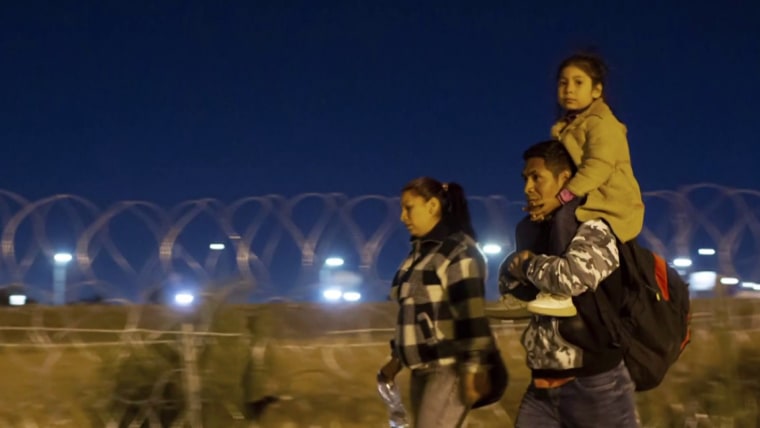
The head of the U.S. Border Patrol is retiring after more than three decades with the agency, and after helping oversee policy changes this month aimed at curbing irregular crossings at the U.S.-Mexico border following the end of Title 42 pandemic restrictions.
U.S. Customs and Border Protection Acting Commissioner Troy Miller called the Border Patrol chief a “true leader” in a statement announcing Ortiz’s retirement.
“He has numerous accolades and awards from his tenure in the Border Patrol, but the highest compliment we can bestow on him is that he is a great agent,” Miller said. “I want to congratulate Chief Ortiz on his retirement after more than three decades of service to our country. I look forward to seeing him out on the water, fishing from his boat, as he enters this next and well-deserved chapter.”
It is not yet clear who will replace Ortiz.
The Border Patrol chief said his last day with the agency would be June 30 in a note sent out to staff on Tuesday, The Associated Press reported.
“I leave at ease, knowing we have a tremendous uniformed and professional workforce, strong relationships with our union partners, and outstanding leaders who will continue to tirelessly advocate for you each day,” Ortiz said in the note, according to the news agency. NBC News has not seen the note and was unable to immediately verify that reporting.
The Border Patrol did not immediately respond to an overnight request for comment.
Ortiz became the 25th chief of the Border Patrol on August 15, 2021. His predecessor, Rodney Scott, who embraced restrictive immigration policies ushered in under the Trump administration, retired after the Biden administration asked him to step down.
Ortiz led the Border Patrol through a large part of the Covid-19 pandemic and Title 42 emergency health restrictions, which began in March 2020 under the Trump administration, allowing agents to swiftly turn migrants away from the U.S. border.
The Border Patrol chief also helped roll out new restrictions this month aimed at discouraging migrants from crossing the border without authorization, while opening up other legal pathways to enter the U.S. following the end of pandemic restrictions.
Despite predictions of an influx of arrivals at the border after the May 11 end of Title 42, the southern border saw the number of migrant encounters by U.S. border agents drop in the days following its expiry.
Shelter operators and workers previously told NBC News that many migrants were aware they risked facing a five-year ban from the U.S. if deported under an existing rule called Title 8, so they said many were waiting to get official U.S. asylum appointments via cellphone rather than trying to cross the border without authorization.
In the lead-up to the lifting of pandemic restrictions, Ortiz estimated that around 60,000 to 65,000 migrants were in northern Mexico waiting to enter the U.S.
“We are not in a position where we can ATD everyone,” he said, using an acronym for the program that allows the authorities to track migrants released into the country, but he said: “I would like to.”
Ortiz began his career with the Border Patrol 32 years ago in May 1991, with the agency’s San Diego Sector, according to a profile on the CBP’s website.
Before joining the Border Patrol, he served in the U.S. Army’s 8th Infantry Division in Baumholder, Germany, and he attended the University of Texas in San Antonio and Southwest Texas Junior College, studying political science and criminal justice, the profile says.
He was given two Meritorious Honor Awards from the Department of State, the Certificate of Achievement from the State of Texas and the Superior Civilian Service Medal — the Department of Defense’s third highest civilian honor.

 Latest Breaking News Online News Portal
Latest Breaking News Online News Portal





